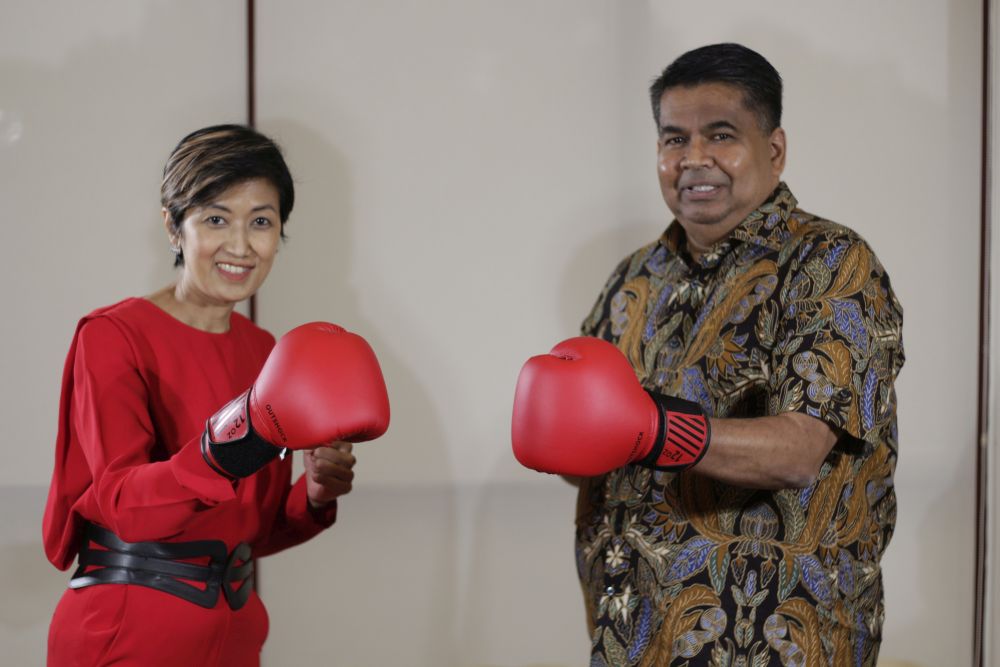
KUALA LUMPUR, Jan 22 — The Covid-19 pandemic has put extraordinary expectations on the Malaysia Digital Economy Corporation (MDEC) which, in turn, has accelerated the need for change, said its chief executive officer Surina Shukri and chairman Datuk Rais Hussin.
They said the recent exodus of several senior executives was something that was bound to happen, sooner rather than later due to the pandemic.
Speaking exclusively to Malay Mail through online video conferencing, Surina explained that MDEC had been committed to making changes since she joined them two years ago. The only thing was it took longer than expected.
“Drawing from my experience with many other organisations, there were things that could be improved but that was gradual slow change. When I arrived, there were different silos (within MDEC) and it was very difficult to understand what MDEC actually does,” said Surina.
“Post-pandemic, the pace of change has only gotten faster. We saw five years of digitalisation crammed into one year and companies like us are having to do more as expectations increased and the time to do it reduced.
“Things that needed several years to change must now be accelerated, and to do that, we must look at new ways of doing things. Hence, I would like to set the record straight here and say it’s not like nothing has happened before, but the pace has significantly accelerated.”
Reports emerged yesterday that several executives from MDEC have resigned. The reason for their departure was not given and this has led to speculation that dark days lie ahead for the agency established in 1996 to drive the digital revolution in Malaysia.
Rais is a Parti Pribumi Bersatu Malaysia (Bersatu) member and received flak on social media when news emerged that many of the former executives had resigned.
He, however, said that when he joined MDEC, both he and Surina’s mission was to build an institution that can function well, for a long time, and continue to improve and drive digital adoption for all Malaysians.
Among the executives who quit were chief operating officer Datuk Ng Wan Peng; chief financial officer Nor Faizah Othman; chief information officer Abdul Malick Aboobakar; investment development vice-president Wee Choong Hew; creative multimedia director Hasnul Samsudin; growth ecosystem development vice-president Norhizam Kadir;0hHuman capital director Suzana Nawardin; and sharing economy ecosystem director Darzy Norhalim.
However, MDEC said new hires include executives from the private sector such as IBM, Microsoft, Celcom, Touch ‘n Go, Astro, Edelman, technology start-ups, Pemandu Associates, and Media Prima, among others.
They also announced the appointment of Nora Junita Mohd Hussaini as chief financial officer with immediate effect.
Adding to that, Rais said these new talents will work well with the new executives who were hired last year.
“We have industrial experts like Aireen Omar from AirAsia, Dr Dhesi Baha, who is a specialist in artificial intelligence and data science, Peter Farouk Lee Abdullah and Jaleeludeen Abu Baker, a governance expert, to help build the organisation into an institution.
“On the management level, we broke down all the silos, we reorganised in collaboration with management, and we streamlined everything into a functional structure,” said Rais.
“Then we brought in Ernst & Young and KPMG to do a holistic governance review on specific areas. They gave us their recommendations based on their studies, and from that study, we implemented and brought in a new discretionary authorisation limit to replace the level of authority we had earlier.
“So when all these changes are happening, there will always be three types of responses.”
Rais said most of the MDEC staff have embraced the changes and engagements will continue to be done with them.
This, he added, represents the first type of response: those who are willing to comply.
The second response is those who need time to acclimatise to new surroundings.
“The third are those who probably cannot fit in. They are still grappling with the changes as they were accustomed to the old ways and they struggle to change,” Rais explained.
“This third group is who we need to engage constructively with and persuade them.”
With all signs indicating that the Covid-19 pandemic will not let up in 2021, both Surina and Rais said one of their key focuses is to upskill Malaysians, empower businesses digitally, and provide tech solutions.
One of the key areas is digital adoption, as Surina said the world we live in is by default a digital one.
“It is now no more a question of why do we need to do digital, but how? People are really looking at the how,” she said.
“Like we did previously, we need to get content, programmes and provide the know-how to people on tech skills,” Surina said.
“We will then need more data scientists, more data security and so on, and this is all part of the overarching upskilling agenda that the government has mandated us to do.”
Rais added that the current pandemic is worse than the Great Depression of the 1920s, but with the vaccine and a new US President in Joe Biden, he anticipates a more multilateral approach by US compared to the Trump administration’s unilateral approach.
“We are facing a troika of challenges, with not just the economy, but the political situation as well. So better things are to come but we need to survive and be ready to restart,” said Rais.

